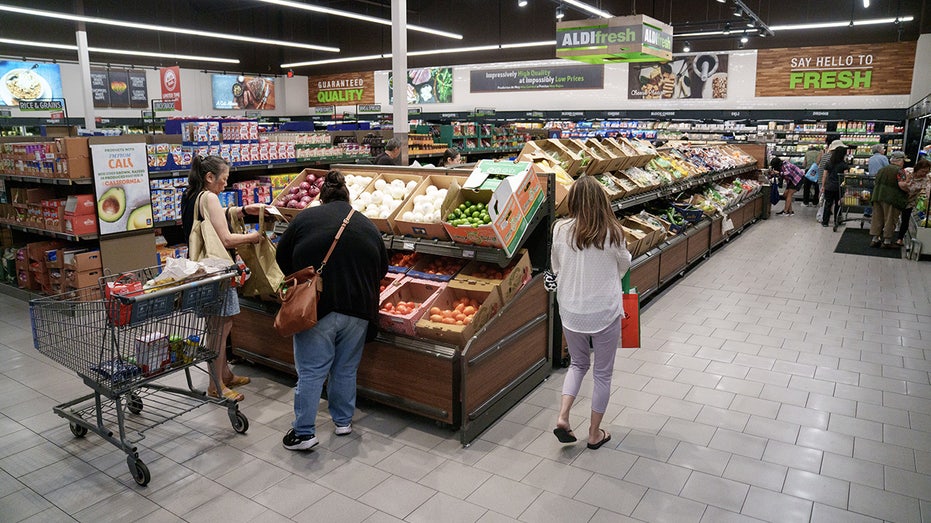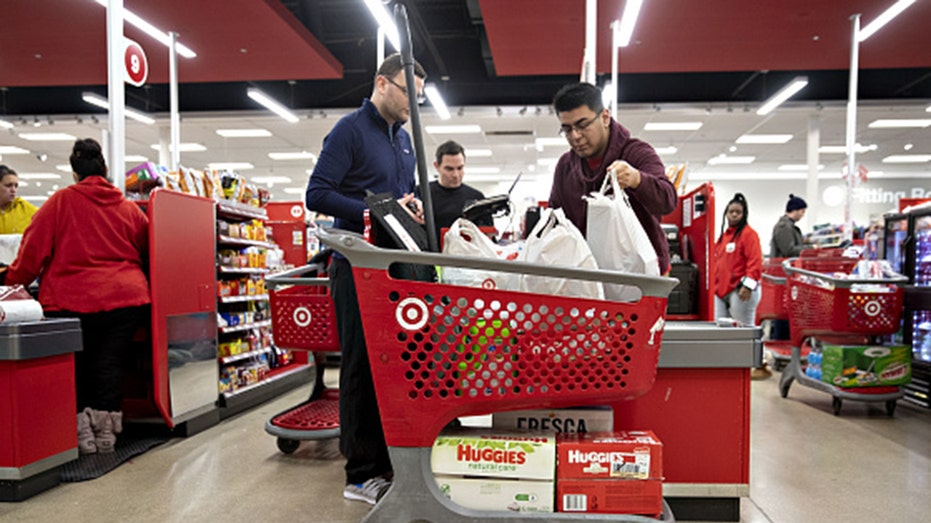

Retail stores and grocers are cutting prices and offering a bigger assortment of low-cost products to attract shoppers who are pulling back on spending in the face of an uncertain economy.
Aldi, widely known as a budget-friendly grocery chain, said on Thursday that it's cutting prices on more than 400 products, equating to nearly 25% of its store selection.
By dropping prices on products across its over 2,400 stores, Aldi said customers will collectively save $100 million this summer.
"While customers may see higher prices at other retailers, we’re working hard to unlock even more value for our shoppers, just in time for summer’s lineup of holidays and gatherings where food takes center stage," Aldi CEO Jason Hart said in a statement.
Target CEO Brian Cornell told analysts during the company's earnings call last month that it is adding more than 10,000 new summer items that will start at $1. It's also expanding its private label brand, Bullseye's Playground, which offers products between $1 and $5, to include beauty items as well as trending snacks and beverages. By July, it will also add back-to-school and college products.

An Aldi supermarket in Alhambra, California. (Eric Thayer/Bloomberg via Getty Images / Getty Images)
Growing economic concerns – including global tariffs – are forcing households to cut back on spending, according to consulting firm McKinsey. While inflation remains consumers’ top concern, tariffs have quickly risen to second place, according to the firm's May survey, which was conducted to understand how tariffs are shaping consumer concerns and behaviors.
Despite the ongoing trade talks, the uncertainty and volatility that still persists in the market are already forcing most of the survey respondents to "explore a range of personal financial behaviors to protect their pocketbooks," the firm said.

A cashier places a bag of items in a customer's shopping cart at a Target Corp. store in Chicago, Illinois. ( Daniel Acker/Bloomberg via Getty Images / Getty Images)
This combination of economic uncertainty and stubbornly high prices are driving retailers to lean into the "value message," Arun Sundaram, equity analyst at CFRA Research, told FOX Business.
"It’s also a more competitive landscape, which means retailers are working harder to earn customer loyalty. Low prices and price cuts can help drive store traffic, but they also force retailers to find efficiencies elsewhere in the business, as many are already operating on thin margins," Sundaram added.
